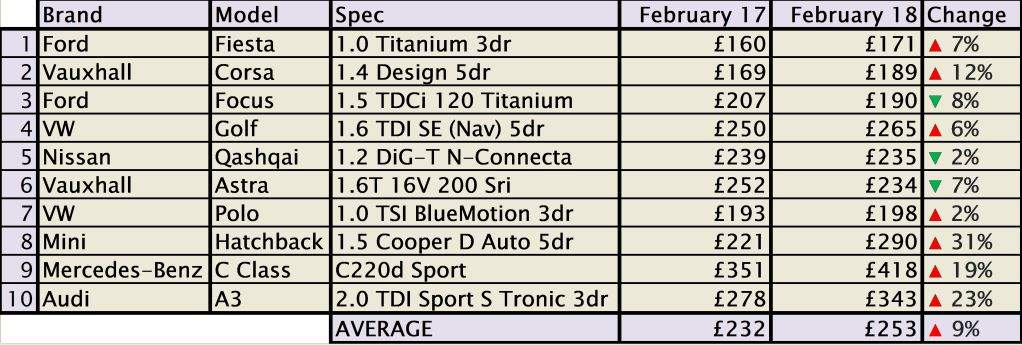UK car import costs have driven the costs of a new car up by 9% in the last year according to research by accountants UHY Hacker Young.
The monthly cost of leasing some of the most popular car models in the UK rose from an average of £232 in February 2017 to £253 in February 2018, said the firm. This figure was based on an average Personal Contract Hire deal.

Weak sterling is pushing up the cost of imports for car manufacturers. With the pound still down 14% against the Euro compared with before the Brexit vote, manufacturers are passing their increased supply chain costs on in the form of higher forecourt prices.
UK new car prices are also being pushed up by strengthening sales in European markets. In recent years, manufacturers have tended to push excess unsold stock from Europe into the more-active UK market, resulting in lower prices here. As sales in Europe have risen in recent months, manufacturers have been able to reduce this, cutting the need for discounting in the UK.
The three biggest rises in monthly cost were all among cars made by German manufacturers (see table below) – the Mini Cooper D (up 31%), Audi A3 (up 23%), and Mercedes-Benz C220 (up 19%).
How well do you really know your competitors?
Access the most comprehensive Company Profiles on the market, powered by GlobalData. Save hours of research. Gain competitive edge.

Thank you!
Your download email will arrive shortly
Not ready to buy yet? Download a free sample
We are confident about the unique quality of our Company Profiles. However, we want you to make the most beneficial decision for your business, so we offer a free sample that you can download by submitting the below form
By GlobalDataHeavier discounting among prestige carmakers now appears to be coming to an end. Over the last two years, consumers have often found that cars from German manufacturers have had lower per-month price tags than mass-market brands.
Paul Daly, partner in our Manchester office, comments: “Car prices are now clearly on the rise again. UK car buyers have benefitted from a period of deep discounting, but that looks to be coming to an end.”
“Long-term Sterling weakness means manufacturers are having to shift their rising supply chain costs on to consumers.”
“Strengthening European car sales have also meant that the UK market is having to soak up much less excess stock from mainland Europe, which is also driving up prices here.”
“That is particularly true for prestige German cars – the days of an Audi A3 costing less than a Vauxhall Astra appear to be over for now.”







